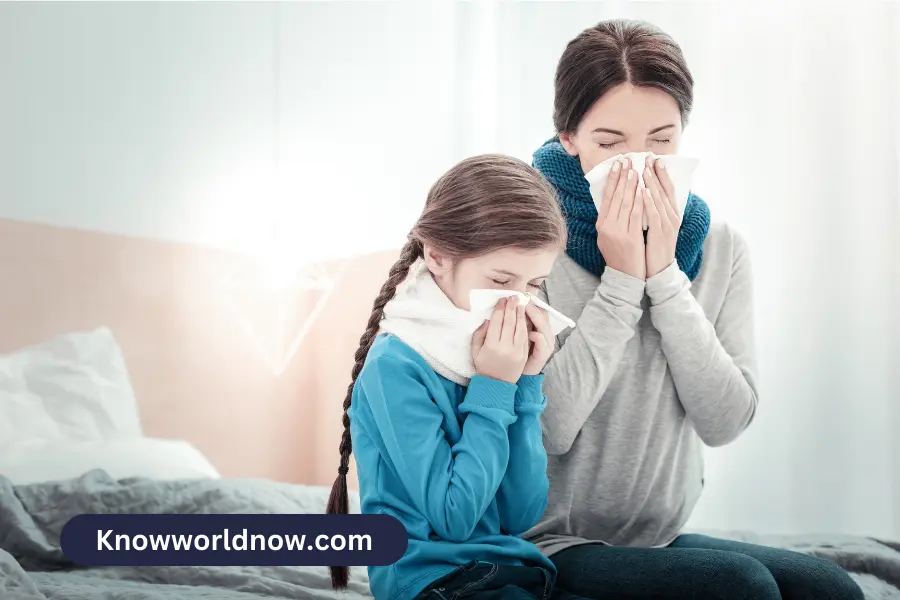Allergies appear to be enjoying a heyday this year. If you suffer from them, you won’t be thrilled by their good fortune. You will, however, be seeking ways to hold them to a dull roar.
Blame climate change. Longer growing seasons promote pollen, and warmer winters fail to kill mold spores. For allergy sufferers, there’s nothing super about California’s historic rain-fueled super bloom.
Still, it would be a shame to miss out on the beauty of spring and summer blooms. Stop just hiding behind antihistamines, eye drops, nasal spray, and tissues and fight back. Here are four ways you can combat the symptoms of this allergy season.
Mind Your Filters
The purpose of any HVAC filter is to capture dust, spores, pollen, and other particles. The filter should keep them from being pushed into the air you’re breathing in your home. If they do, your allergies won’t be exacerbated.
But filters can’t do their job if they’re too full of the stuff they’re designed to stop. In fact, dirty filters will start spewing the particulates they’re supposed to catch because they’re overflowing.
If you haven’t inventoried the filters in your home, take time to do so and either replace or clean them. Begin by checking the filter in your central air conditioning unit. If your vacuum cleaner, air purifier, or any other appliance has a HEPA filter, you’ll need to replace those as well.
The COVID-19 pandemic taught us all about the importance of good ventilation to keep ourselves healthy. You can’t control Mother Nature outside, but you can control your air quality inside. Mind your filters and breathe easier.
Find the Right Allergy Medication
Not all allergy medications work the same, nor do they work the same on all people. There is good news in the fact that more and more of them are offered without a prescription. Make use of that availability to explore your options — there are a lot of them!
If you’re still taking old-school Benadryl, you may want to modernize. Newer antihistamines last significantly longer and don’t prohibit you from operating the proverbial heavy machinery. There are antihistamines in eye drops, nasal sprays, and oral medications.
If you’re suffering from a stuffy nose or painful sinus pressure, you may need a decongestant. If inflammation is a symptom, corticosteroids might be the ticket. Don’t be alarmed if your stuffed-up head is spinning at the possibilities.
Over-the-counter allergy medications are largely safe to use and have few side effects. That’s good, as you should take them like clockwork during allergy season, even if you think you’re OK. Building up their protection in your body will help keep the worst symptoms at bay.
When the immune system reacts to allergens, it releases chemicals that may cause inflammation and discomfort throughout the body, which is why allergies cause body aches.
Figure Out Precisely What Ails You
Symptoms are triggered by a variety of allergens. The key to unlocking the best remedy — whether that’s medication or avoidance — is knowing what’s triggering your allergies.
If you can’t find relief with OTC medications, you need to know why. There are a few ways you can be tested to find out what you’re allergic to and what you aren’t.
The least invasive test uses a patch, covered in an allergen, which is applied to your skin to see whether you react. Your doctor may apply multiple patches with unique allergens, which you wear for 48 hours. It can take days to determine whether you are allergic to any of them.
The fastest way to gauge a potential reaction is to apply drops of allergens on your skin. The skin under each drop is pricked, soliciting an immediate reaction to anything you’re allergic to. Or an allergen may be injected under the skin to see whether you react to it.
The success of any battle begins with understanding your opponent. Your allergies are no different. Knowing what you are and aren’t allergic to will help you choose the right weapons to fight back.
Protect Yourself
There are methods other than medication you can employ to protect yourself against allergies. They range from avoidance to taking extra precautions. But they all can give you an extra shield against the worst symptoms.
You may have stopped wearing masks to protect yourself against COVID-19, but don’t throw them out. Wear them when mowing grass, dusting, or vacuuming — or if your friend’s cat makes you sneeze. When pollen counts are high and you have to spend time outside, mask up.
Speaking of time spent outdoors, limit it when pollen and mold spore counts are significant. There are certain times of the day when counts are higher than others. By midday, pollen counts are usually at their absolute worst, so you might want to skip that picnic lunch.
Don’t cut your cats or dogs any slack during allergy season. Keep them out of your bedroom if they’ve been outside and thus gathering pollen and other particles in their fur. And you might want to bathe them more frequently both to remove what they pick up outdoors and minimize dander.
Fight Back
It’s pretty easy for allergy symptoms to spoil an otherwise good day, so don’t take them lying down. If you experience any breathing problems or asthma-like symptoms, see your doctor right away. Otherwise, take these steps to protect yourself and to reduce symptoms.
Allergies can hit you hard this time of year. Do what you can to fight them, and maybe you can leave the tissues at home.







